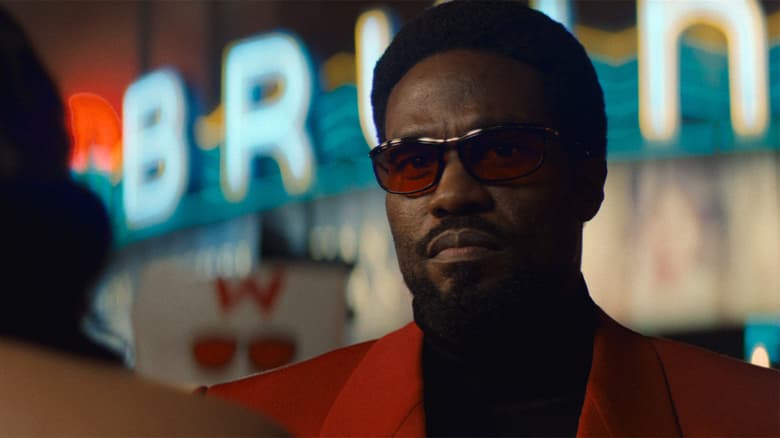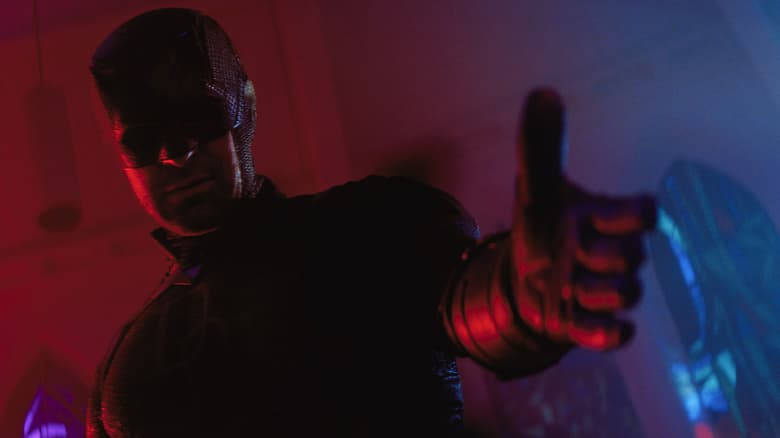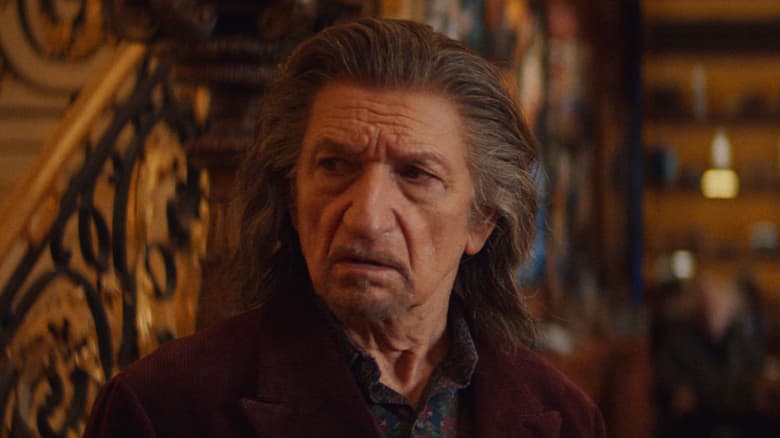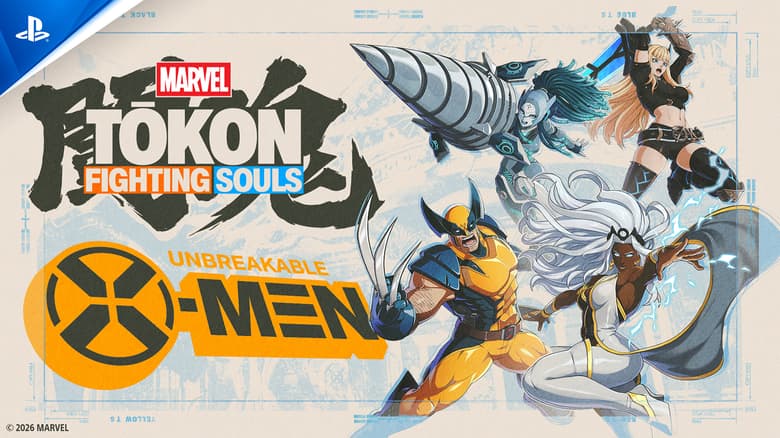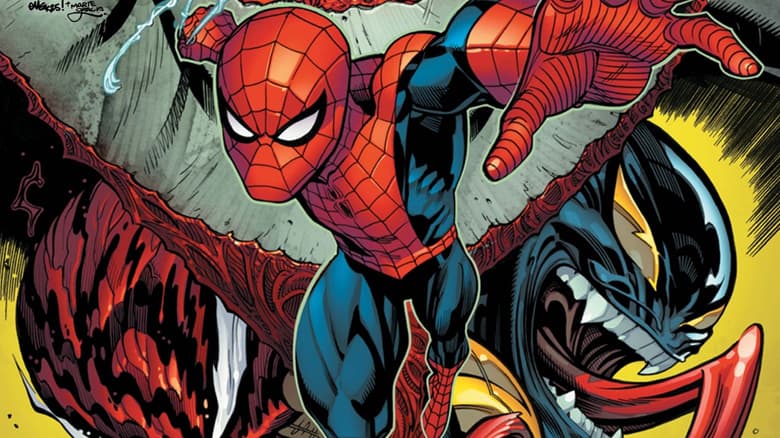A Vision of the Past
Tom King opens up on his acclaimed comic book series!
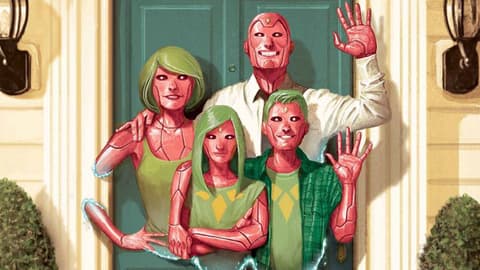
Months after Tom King and Gabriel Walta wrapped their critically-acclaimed run on VISION, Marvel Comics will be releasing a Director’s Cut edition to give fans the ultimate “behind-the-scenes” experience. For readers who want to see script pages and in-progress art, this is a must-see comic!
In the run-up to its release, we spoke to writer King about his experience working on the title with Walta and some of his thoughts on why readers responded to this story like they did.
Marvel.com: When we first spoke, Marvel was just getting ready to release VISION to the reading public. At the time, you told me that “I’m a crazy huge Avengers fan; they’re the team that got me into comics as a kid,” and that writing a series about Vision was too good to pass up.
With your tenure complete, how would you say you’ve changed the way people view the character?
Tom King: I don’t know if that’s for me to say. Comic readers are a diverse group of people who come from a multitude of [backgrounds]; I doubt that there was any common reaction to this series besides, “Why does Tom hate cats?!? And dogs?!?” I can say that I wasn’t trying to change the way anyone thought about Vision. Everything in this series is intended to be true to the character built by people like Roy Thomas, Steve Englehart, and John Byrne. He’s always been a weapon of evil trying to be good, a robot tragically convinced that being good means being normal. In this series, we just stood on the shoulder of all the giants who have worked on Vision, and we tried to describe the world we saw from way up high.
Marvel.com: You also mentioned that “Vision is the extraordinary trying to be ordinary.” Do you think he was successful? In what ways?
Tom King: I don’t really believe in stories where people learn things about themselves, have epiphanies, and change their whole lives for the better. I write those stories sometimes, because they’re good stories and a lot of good can come out of them, but I don’t believe in them. It just seems to me that as we live our lives we make constant efforts to change and sometimes we succeed and sometimes we fail, and sometimes we do both and sometimes we do neither, and most of the time when whatever it was we did is done, we realize that nothing is ever done, and so we shake ourselves out and try to do it again. Vision tries to be ordinary. That effort is the most ordinary thing he does. So, in trying, he succeeds; and such success is extraordinary, so as he succeeds, he fails. Hopefully in that roundabout something true comes out.
Marvel.com: Marvel will be releasing the Director’s Cuts of VISION, where readers will get a look behind the curtain with your run on the series. What sort of content do you hope fans will get to see?
Tom King: Being a typical egotistical writer, this is hard to say, but in all honesty, I get way too much credit for VISION. The team working on this book—Gabriel on art, Jordie [Bellaire] on colors, Clayton [Cowles] on letters, Wil [Moss] on edits, Mike [del Mundo] on covers, and me on egotistical writing—created this book together; if you think it’s good, it’s because we made it good, not because I made it good. Hopefully, people will look from my scripts to the finished product and see how Gabriel designed each scene, how Jordie added mood, how Clayton turned words into dialogue, how Wil made it all flow together, how Mike set the stage, and how I got some credit that definitely belonged to them.
Marvel.com: Unlike math, where you have to show all of your work, writers generally want to erase all of their mistakes so their audience only views the finished product. What do you think is the appeal for general readers to the Director’s Cuts?
Tom King: I think it’s probably two things. One, there’s something about reading comics that invites you to make comics. A lot of people—including me—who get joy from this medium want to get their hands dirty and make something as good as what they’re reading. This is a chance to see how this particular something got made so that people can take the methods and tricks we used, put their own spin on them, and put out their own joy. That’s how I got started: from reading books like this that revealed how books like this were created, then copying that as best as I could.
Two, when something succeeds, there’s fun in knowing how it could have failed. It reveals to you the contingency of art and maybe even life. I personally can’t get enough of reading about old comics or movies and the crazy coincidences, efforts, and mistakes that led to something cool getting out there. Maybe it makes you appreciate what you have, or maybe it makes you long for what you didn’t get. Either way, it’s a thrilling buzz we thrilled fans seek out, and it’s what you’re getting here.
Marvel.com: Most writers usually find they have to go through multiple drafts to finally get to the finished product. Were there any major changes to your arc that you can think of that shifted from one draft to the next? What were they?
Tom King: VISION didn’t really go through multiple drafts. For the most part, what you see here is my first take on what the issue would be, and I was lucky enough that that also got to be my last take. Probably about half the issues had one to three pages that had to be rewritten. You will see some stuff that changed at the lettering phase when the words in the script have to adjust to the art that’s actually drawn, which is a natural part of comics.
The biggest change along the way was probably the inclusion of Victor Mancha. Originally, this was supposed to be the Golden Age Human Torch, who is sort of Vision’s step-father/uncle and would’ve played a more grandfather-like role. Sadly, due to stuff in other books, Human Torch became unavailable, and Wil Moss, our editor, suggested Victor. This worked out better in the end than my original plan. Sometimes, comics are improvisation. Or I should say: Sometimes, the best parts of comics are improvised.
Marvel.com: Is there any anxiety over people seeing your work “in progress” or are you comfortable with letting it all out for the world to see?
Tom King: I feel like I should say no. I should say that I’m fully confident that everything I’ve done will shine brightly and show the way to better things that I’m about to do. But if I said this, I wouldn’t be a writer, much less a writer with enough worries to write about a robot family that does nothing but worry. So, yeah, I’ve got some anxiety. But if you don’t have anxiety, you’re not risking anything. If you’re not risking anything, you’re not making comics, and all I ever wanted to do was make comics. So, I’ll take the anxiety and the comics.
Marvel.com: What would you say is your greatest achievement with this series?
Tom King: There’s a scene in issue #10 where Vision prays. It’s just a few pages, but I think it’s the best scene I ever wrote, or maybe ever will write. I think I got to something in those panels—something I usually can’t get to, though I try. It was something to do with using the marvelous absurdity of super hero comics to reflect the marvelous absurdity of this life. I know, this is all very braggy and everything, but I’m really proud of those pages. To be fair, I warned you I was an egotistical writer.
Marvel.com: Likewise, what about it challenged you most?
Tom King: The hardest issue to write was issue #9, where one of the kids dies. It makes very little sense to me, since Gabriel and I created these kids. They exist solely to tell this story, and in this story, one of them dies, so the death should not be a big deal. But in actually writing the scene, in picturing it in my head, Vision cradling his child, I had trouble just putting words on the page. It felt like each hit on my keyboard was a body blow. Which again, makes no sense, as nothing here is real. But it was what it was, so that’s the story I’ll tell.
Marvel.com: Just one last question: In looking back on your run with Gabriel Walta, I’m curious how you see the two of you having grown from your experience on this book?
Tom King: [Laughs] Well, first I refer you back to my rambling above about how I don’t believe in growth because it seems to contradict itself while it’s happening. And to be consistent with that contradiction, I would say I grew incredibly while writing this series. The biggest part of this was the realization that there’s an audience out there for a book like this.
But to get to that audience, you have to be worthy of that audience. You have to be as intelligent, funny, and sophisticated as they expect you to be, as they are themselves. I like this book. I like working on this book. I like that people found this book. My growth is in finding that I could get to a place where I liked so many things.
Look for the Director’s Cut editions of VISION coming soon!
The Daily Bugle
Can’t-miss news and updates from across the Marvel Universe!
